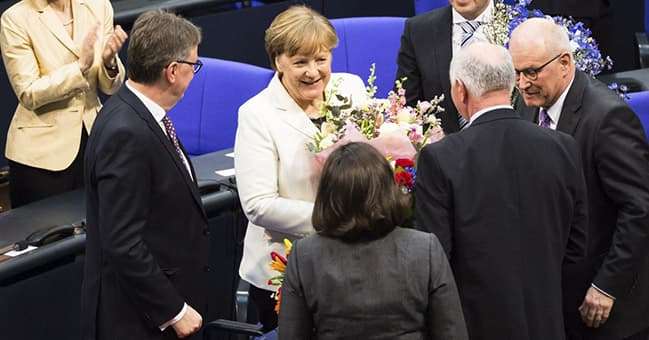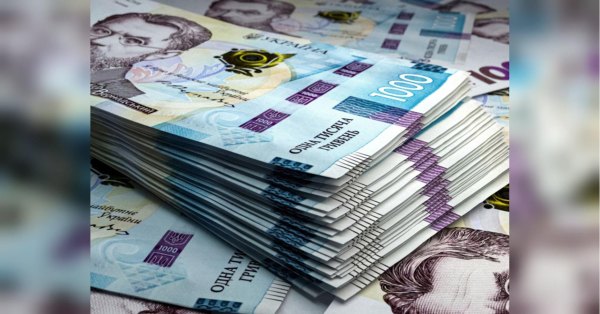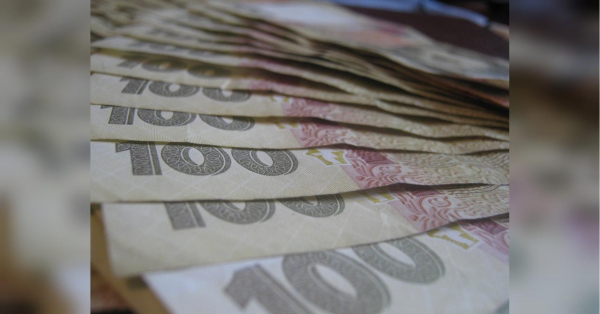
Imagine being governed by both the center-left and center-right, and you’ve got the idea behind the Grand Coalition (GroKo) in Germany. The Social Democrats (SPD) have teamed up with the conservatives after two thirds of them agreed to the GroKo, despite a left-wing revolt. The new government will take office on March 14. For the third time in four terms, the once proud Marxist party that traces its lineage back to Wilhelmine Germany and the “iron” chancellorship of Otto von Bismarck will be a secondary coalition partner. Some party members wonder if the SPD will survive.
The status of the center-right Christian Democratic Union/Christian Social Union (sister parties that act essentially as one) may be a little better. Although the bigger vote-getter, Chancellor Angela Merkel’s coalition made significant compromises to win SPD agreement. That’s brought about conservative criticism, and now many are expecting her to make way for new leadership before her term ends.
Critics of the centrist governing cartel have been emboldened. The populist Alternative for Germany received almost 13 percent of the vote last fall and is set to become the official opposition, which guarantees chairmanship of select Bundestag committees and greater press attention. The party’s members reject the traditional consensus on both substance and process, ensuring a contentious four years under the new GroKo.
Also invigorated are the other opposition parties. As the successor to East Germany’s communists, Die Linke represents the hard left. The Greens are the cosmopolitan left, unreservedly in favor of accepting migrants and refugees. The Free Democratic Party has returned to the Bundestag after an absence of four years, determined to separate itself from its former coalition partners, the CDU/CSU. The FDP combines a more liberal (in a European sense), business-friendly economic agenda with opposition to uncontrolled immigration.
The most important question is whether the continuing breakdown of the two traditional governing parties will spark their renewal or continued decline. Since the first GroKo in 2005, the governing cartel has hemorrhaged votes. Just five years ago, the SPD-CDU/CSU won two thirds of the electorate. Last fall that total was barely a majority. As the parties negotiated a coalition agreement, the SPD, which won only a fifth of the vote, saw its poll share fall to an abysmal 15.5 percent, below that of the AfD. At that level another GroKo could become impossible.
No doubt, this threatened slide to oblivion—a new election was the most likely consequence of a coalition collapse—encouraged some SPD members to vote yes. But the two prior GroKos accelerated the party’s decline. After the 2005 election, in which Merkel’s promises of serious economic reform lost most of the CDU/CSU’s early electoral lead, she moved sharply left, embracing much of the SPD’s agenda. The nominal conservatives got credit for governing to the center-left, leaving the Social Democrats as a marginal political afterthought.
That trajectory seems likely to continue, though there are some signs of life emerging in the major parties (“oxygen is flooding back into the bloodstream of German politics,” claimed The Economist rather melodramatically). Whether the result will be beneficial or fratricidal competition is not clear. The SPD debacle led to an unseemly public squabble over positions and the destruction of Schulz’s career. The party leader and chancellor candidate, recalled from Brussels just a year ago where he served as president of the European Parliament, was supposed to energize the party; instead he lost the SPD chairmanship and was forced to abandon plans to serve in Merkel’s cabinet. Andrea Nahles, who as the party’s parliamentary leader has taken a more confrontational stance, is expected to take over the SPD next month.
Increased activism won’t be enough. Immigration is not the only issue to drive many Social Democratic voters to the AfD. Former SPD Finance Minister Peer Steinbrueck warned: “Like the Socialists in France, the SPD is in danger of caring more about anti-discrimination and lifestyle issues than the concerns of the majority of the population.”
Also notable is Chancellor Merkel’s diminished stature. Although she has dominated politics since becoming chancellor in 2005, the “safe hands” campaign lost its potency as her conservative parties slumped to their worst result since 1949. There was no formal challenge to her leadership, but observers speculated that she might join Schulz on history’s ash heap if she failed to strike a coalition deal.
She ended up concluding the pact, but only by making substantial concessions to the Social Democrats, who badly trailed the CDU/CSU and received notably fewer votes than in 2013. One analysis found that 70 percent of the coalition agreement came from the SPD’s election manifesto. The SPD also gained the finance minister, which had been held by the CDU/CSU since 2005.
Merkel’s Bundestag colleague Christian von Stetten called the latter decision “a political mistake,” a judgment echoed by other conservatives. The head of the CDU’s business board said that the coalition deal “concentrates primarily on redistribution and has no answer to the big questions in our country.” Thomas Kleine-Brockhoff of the German Marshall Fund called the pact “one big giveaway, freebies for all,” leaving the agreement with “a left-liberal feel to it.” The immigration issue is even bigger. At the party conference approving the pact one member complained that “we have helped to create room on the far right and contributed to the success of the AfD. We gave them one million of our voters.”
While Merkel has long refused to anoint an heir-apparent, the race to succeed her has finally begun. “We in the CDU must start thinking right now about a new line-up without Merkel,” said Klaus-Peter Willsch, a Merkel critic. Even her allies acknowledge that this will be her last term. Indeed, in the name of introducing new leadership, she elevated two likely rivals for her job. Merkel made her economically leftish, socially conservative Catholic protégé, Annegret Kramp-Karrenbauer, informally known as the mini-Merkel, CDU general secretary, and the outspoken, confrontationally conservative, and gay Jens Spahn health minister. He recently declared: “I’m not willing to just accept the existence of a party to our right in parliament.”
Merkel is thought to favor Kramp-Karrenbauer as her successor. But Spahn better matches the public mood. Others who might join the race include returning Defense Minister Ursula von der Leyen and former Interior Minister Thomas de Maiziere. The coalition also faces an unprecedented two-year review, which could trigger a change in leadership. The post-Merkel era is in sight.
The changed debate reaches beyond the Bundestag. The traditional social consensus is fraying. Noted the American Foreign Policy Council’s Wayne Merry, “The official poverty rate among unemployed Germans is the highest in the EU, while German television views routinely see elderly and unemployed citizens fed by soup kitchens while migrants receive priority for housing, training and other benefits.” In response the charity Essener Tafel announced that it would restrict access to its food bank to German citizens, triggering heated criticism.
Graffiti directed at Essener Tafel declared “F*ck Nazis.” Merkel denounced the policy, while the AfD came to the charity’s defense. The charity’s head, Joerg Sartor, responded by saying “They ought to reciprocate and help out here—after that they can voice an opinion, by all means.” He said the group’s new policy reflected not xenophobia, but concern that single mothers and elderly women had stopped coming for assistance.
The formation of a stable government led to praise elsewhere in Europe, but Berlin is not likely to back greater continental consolidation and European Union control over member states’ finances, as hoped in Brussels. The coalition accord began with a chapter entitled “A new Departure for the EU,” it offers mostly platitudes rather than policies. However, few SPD voters and even fewer CDU/CSU supporters want to effectively turn Germany’s strong fiscal position over to the perceived wastrels who collected a succession of European bailouts. Even the SPD member tapped for finance minister, Olaf Scholz, leans conservative on fiscal matters, while the Social Democrat who most vigorously backed a United States of Europe was the fast receding Schulz.
Washington is unlikely to be satisfied with the new coalition. The last Merkel government promised to up Germany’s military outlays to 2 percent of GDP by 2024. But Berlin fell back from that goal this year and the future bodes ill: the SPD rejected the proposal in last year’s campaign and the coalition agreement envisions defense spending at 1.15 percent of GDP. German voters evidence no fear of attack, big or small, so why should the U.S. expect them to spend more, irrespective of the Trump administration’s wishes?
Germany has turned into the world’s most important example of cartel government, with three of four administrations created by a political carve-up between the two establishment blocs. The major parties hope that another GroKo will allow them to run out the clock, so to speak. If social peace returns, they believe, so will AfD voters.
However, the populists scored big last year even though immigration had dropped dramatically from its 2015 peak. Such issues might lose some intensity, but they aren’t likely to disappear. Unless the respective party members find their voices and reinvigorate a debate that has been largely suppressed for years, public dissatisfaction will grow. Warned Julian Reichelt, editor of the Bild newspaper: “If the mainstream parties don’t cover key subjects such as security and migration, they will be captured by radicals from both the left and right.” And while Germany has moved far beyond its history, the past offers a warning. Disenfranchising those who are frustrated and angry is unlikely to deliver the kind of prosperous, peaceful future that most of us desire.
Doug Bandow is a senior fellow at the Cato Institute. A former special assistant to President Ronald Reagan, he is author of Foreign Follies: America’s New Global Empire.
Sourse: theamericanconservative.com






